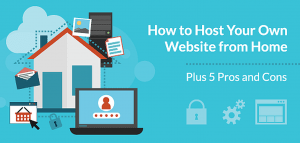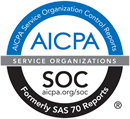Contact Us
- Call Now:(01)773-455-6676
- Sales Email:sales@dedicatedhosting4u.com
- Support Email:support@dedicatedhosting4u.com
- Billing Email:billing@dedicatedhosting4u.com
Close Support
Can I host website from home and is this a good idea….?
Can I host website from home and is this a good idea….?
This article is for persons who’ve gone a step further as well as want to safely plus securely set up a web server on their house PC. If you are planning to host website from home, or you by now have done so, you must ensure that, in the least, you have a few safety measures in place.
Not more than 8 years ago, the consideration of a home user hosting a web server was something that will have been laughable. However with the reputation of BSD as well as Linux on the rise, and free server software for example Apache becoming more usually used, it is no longer as unlikely as it will have seemed then. Even Microsoft has an individual Web server accessible for home use.
Host website from home and get a great power to your hand
As with each new technology that is given to the masses, safety problems are certain to pop up. It’s so simple to set up a web server as well as host your own web site currently that there is little, if any, enticement not to do so on your own PC. Most users think it is fun, and as well a quick way to share files plus documents with family plus friends.
The difficulty with all of this is that while an individual sets up their home-based web server, several of them have no idea how to correctly secure it, and many might not even have the newest updates for their exacting software installed, setting them up with a extremely high risk of intrusion in to their computer (and therefore their personal lives) by hacker.
The major issue is that while you run a Web server on your house PC, you’re opening a port on your PC that allows entry from the exterior world. Web servers might not be the easiest method to gain access to a PC, your website deface, and perhaps even having your PC taken over totally by unscrupulous persons.
Few users have taken PC security classes or else have knowledge of web server security. As I have pointed out, while you open up a service for example a web server on your mechanism, you are not just letting your friends and family attach to it, you’re as well letting the whole internet access your hard drive as well as all that data that it contain.
Many populaces are under a false sense of safety, thinking that “if I set up a web server on my PC at home, no one would be connecting to it except those friends that I inform about it”. This is of course totally untrue if not they’ve taken the appropriate security measures for their web server, for example specifying that simply users with precise IP (internet protocol) addresses could access it. Very little home users know how to do this though, and it can be difficult even for those that do since most users attach to the internet using dynamic IPs. This means that each time they attach to the internet, their IP address change, hence the problem.
The internet is, similar to the rest of the globe, a dangerous place wherever anyone, including criminals, could connect and do as they please. Even usually law abiding populace often commits crime on the internet owing to their perceived anonymity.
Lets see in more deeper , what are the 5 best reasons to host websites at home.
Five Reasons to Build Your Own Home Server
Sure, depending on the sort of equipment you’re using, it’s not the easiest procedure in the world, but it’s a fun way to put your old hardware to good use or to improve your computer abilities.
Furthermore, there are some fun things you can do with your own server if you make one. Continue reading to discover more about the advantages of constructing a home server of any sort.
- Create a server and take control of your data
We know what you’re thinking: why have a home server when you can utilize Google Drive or Dropbox instead?
The custody of data is the most significant distinction between home servers and third-party cloud services.
Google Drive and its competitors, contrary to popular misconception, do not own the data you upload to the cloud. However, the corporations maintain the right to duplicate, change, and make derivative works from your materials.
Your data may also be shared with domain managers, legal organizations, and affiliates by cloud providers. The firms’ privacy policies contain a statement to that effect once again.
You can still profit from on-the-go file storage if you construct your own server, but you won’t have to worry about your privacy or security.
- It Is Inexpensive to Set Up a Home Server
This is a little more subjective.
You could go out and spend several thousand dollars on market-leading equipment to build your own server if you were so motivated. After the initial investment, the continuing power bills for all of the units and cooling equipment would be substantial.
In truth, anybody with an old laptop or an inexpensive piece of hardware like a Raspberry Pi can create a home server.
Performance is, of course, a trade-off when utilising outdated or inexpensive technology. Cloud services like Google and Microsoft are hosted on servers that can handle billions of searches every day.
That’s a level of performance that your 10-year-old laptop can’t match. It may be sufficient if you simply need remote access to a few files. However, if you want your personal web server to operate as a central hub for your entire family or small business, you may need to purchase specialized hardware.
- Set up a separate gaming server
Many of the most popular Steam titles allow you to operate the game on your own dedicated server. Gaming is, without a doubt, one of the coolest things you can do with a home server.
There are a few advantages to using a dedicated gaming server versus rented servers or playing on other people’s servers:
- You have complete control over and customization of every aspect of the game.
- Rather of waiting for another person/business to install the latest version, you are in charge of game updates.
- In the event that your gaming computer needs to reboot in the middle of a game, you’ll have more stability and less risk to other players.
Minecraft, Counter-Strike: Global Offensive, Team Fortress, and Call of Duty are just a few of the famous titles you may run on your own server.
- Back up your data to a home server.
It’s tough to exaggerate how critical it is to back up your data. You don’t want to lose access to several years’ worth of data if your computer’s hardware fails or is damaged in an accident.
You should have one offshore and one onshore backup in an ideal scenario. A cloud storage provider or a specialized third-party online backup service will normally be your offsite backup. Many individuals utilize external hard drives, USB drives, or NAS systems for onsite backup.
However, one may argue that having a personal server is preferable to all of those possibilities. Home servers are more configurable and (assuming you already have outdated gear) less expensive than the most equivalent alternative—NAS discs.
On the flipside, setting up a server is more difficult than setting up a NAS device. Depending on the size of your server, you may need to utilize additional power.
- Create a Media Server for Your Home
Another incentive to set up a home server is to use it as a center for all of your media.
We live in the streaming age, and the majority of people get their media from services like Spotify and Netflix, but many individuals still have large libraries of locally stored music and films.
A server is one of the greatest alternatives if you want to be able to access all of your local media from any device in your home. Use a service like Plex, Kodi, or Emby to organize your media and control playback to make the process easier.
Plex and Emby will even allow you to view your server’s content while you’re not at home with just a few clicks. It is feasible to set up Kodi for the same reason, but it is substantially more difficult.
After going through the 5 great reasons , we can look into the drawbacks of hosting website at home in deeper bellow .
The Drawbacks of Hosting Your Own Website at Home
Hosting a website is a more involved process than it appears.
At first glance, it appears to be straightforward. The website files are uploaded to the server, the server is connected to the internet, and the website is live. Unfortunately, it doesn’t work like that at all, and hosting a website and all of its accompanying capabilities is a far more complicated procedure than enabling sharing on a folder on your server.
The following are the main reasons why you should not attempt to host your own website on your own computer:
- Modern web server hardware is required for today’s websites. It’s hardly rocket science, but putting your website on an old PC that’s been sitting in a closet for a while isn’t going to cut it. To keep the website running well, you’ll need a lot of processing power and memory, as well as a very stable system.
- Today’s websites necessitate the use of the most up-to-date web server software. The good news is that the majority of today’s popular hosting environment software is open source. The bad news is that it’s not quite plug and play unless you’re well familiar with the programme. It can be difficult to set up a normal LAMP (Linux, Apache, MySQL, PHP) or Windows-based web server setup, especially when you have to determine which versions of each of these platforms to use and how to keep everything up to date and maintained.
- It’s unlikely that your internet connection is redundant. The majority of small companies and organizations now utilize a high-speed DSL or cable internet connection since it is both inexpensive and sufficient for typical office use. However, when you consider a website with dozens, hundreds, or even thousands of concurrent users all-consuming bandwidth from the same (now-degraded) internet connection, you can probably see the writing on the wall. Another disadvantage of having a consumer-grade internet connection to host a website is that there is no backup in place if it goes down.
- When you host in-house, you expose your internal network. When you put your website on the same server and/or network as the rest of your company’s IT infrastructure, you’re exposing your whole network to any security vulnerabilities or exploits that your website may introduce. No matter how secure your system is, enabling the public to view your in-house hosted website immediately invites hackers into the system.
So, what’s the way forward?
You can be fairly certain that your website will be hosted on up-to-date quality hardware if you use a recognized and competent service. The hosting software will be set up appropriately and maintained as needed.
Professional web hosts maintain numerous professional communications grade internet backbone connections online, with enough of bandwidth and a fully redundant connection to the internet. When you host your website with an offsite provider, you also avoid the risk of exposing your network to security threats.
There are, of course, a thousand more reasons to hire a professional web hosting provider rather than attempting to host your website yourself. The things presented here are simply the highlights, so consider them to be the tip of the iceberg. Have questions about hosting and the many alternatives available?If that’s the case, please don’t hesitate to contact us at any time—we’ll be pleased to answer any questions you have about hosting.





